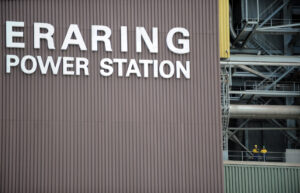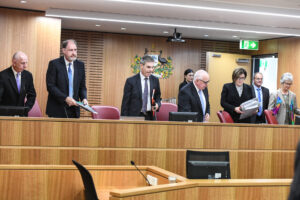For most of the past 40 years whenever the discussion turns to the need to lift productivity, invariably the conversation is dominated by business groups and various media commentators who suggest the solution is more labour market flexibility. Just a bit more flexibility and productivity will improve!
But a speech by the assistant minister for competition, Andrew Leigh, reveals that businesses themselves and the way in which the major players are allowed to dominate industries is a significant drag on productivity growth.
In his Guardian Australia column, labour market and fiscal policy director Greg Jericho, reviews Dr Leigh’s speech and notes that over the past 20 years market concentration has increased across the whole economy. Over this time there has been a fall in the percent of new firms entering industries and also in established firms leaving. This produces a more sluggish economy where the need to innovate and pursue more productive operations is diminished. It also leads to firms being able to markup their prices by more each year as they consolidate their power, and also feel less need to offer better wages as the competition for labour falls.
While wages growth crucially requires fair bargaining arrangements that enables workers to negotiate better wages, when workers have fewer options to pursue better paying jobs at other more productive workplaces, the number of workers switching jobs declines and so too does the market pressure to pay wages.
Dr Leigh notes that this “decline in economic dynamism” needs greater policy focus, and his speech is an excellent corrective to the belief that improved productivity is all about taking away worker rights and giving more power to businesses to hire and fire.
Australian business groups and many on the conservative side of politics love to talk up free-market competition, but the past 20 years has shown the markets are less about competition and more about concentration. And while profits have risen, workers and households have been left worse off.


You might also like
Dutton’s nuclear push will cost renewable jobs
Dutton’s nuclear push will cost renewable jobs As Australia’s federal election campaign has finally begun, opposition leader Peter Dutton’s proposal to spend hundreds of billions in public money to build seven nuclear power plants across the country has been carefully scrutinized. The technological unfeasibility, staggering cost, and scant detail of the Coalition’s nuclear proposal have
A smooth move or a tough transition? Protecting workers who’ll lose their jobs when the Eraring Power Station closes
The Centre for Future Work at The Australia Institute has urged the federal government to take charge of transitioning hundreds of workers into secure employment when the Eraring Power Station shuts down.
The continuing irrelevance of minimum wages to future inflation
Minimum and award wages should grow by 5 to 9 per cent this year



